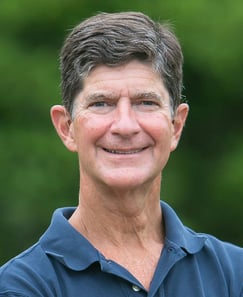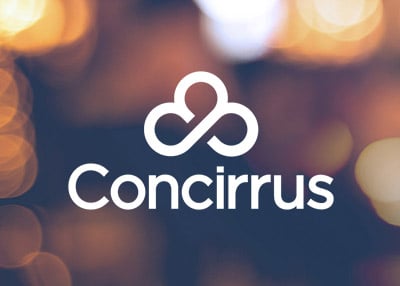Bill Keogh, insurance, analytics, and technology Advisor represented team Concirrus at Marine Insurance Americas this week where he discussed ‘Making Technology Pay’ with other insurance experts. In this Q&A, Bill talks about his role at Eos Venture Partners, work-life balance, and what makes a good leader. Read on to learn more.

1. Tell us about your role as Operating Partner at Eos Ventures Partners.
My main role at Eos Venture Partners is helping to evaluate new investment opportunities and help develop business strategies. As a former CEO and someone who has a good perspective of the insurance market, I can spot what makes for a successful business with a good product/market fit. I also work with our existing portfolio companies helping them achieve their objectives. Throughout my career, I have seen a lot of examples of success and even more examples of failure, so I often use this pattern recognition to both evaluate opportunities and helping companies achieve their goals.
2. You represented team Concirrus at the Marine Insurance Americas this week on the panel discussion ‘Making Technology Pay’. Tell us about this.
The event was very exciting and interesting. On the panel, we discussed ‘Making technology pay’ which is a very appropriate topic as it speaks to the need for product-market fit and how solutions are providing and creating economic benefit. The benefits and the value that you can get from tech products like Quest Marine outweigh the fees that you pay for them. With so many interesting experiments going on today with technology within the insurance market it is the right question to ask. I think what’s exciting about Concirrus is that they have a very good methodology for showcasing their return on investment for their clients.
Concirrus typically engages with their clients on what are they trying to achieve. For example, a client could be looking to reduce expenses, improve operational efficiencies or reduce their loss ratio. These issues can all be addressed through Quest. This is especially important in a world where decisions need to be made faster, products need to be more affordable and the right fit for customers.
3. As someone who has been a leader within the insurance, analytics, and technology space for many years how have you seen the space change? Is the industry embracing technology?
Absolutely. I think the pandemic had a significant impact on the insurance industry embracing change and accepting that to some extent there has to be a new normal of working. However, something happened within the market about four years ago that for me was the true catalyst of change within the market. This is the increased ability to deliver products quickly and affordably. Within a competitive environment like the insurance market, you need to be able to keep up to speed with the rest of the world. Companies can now justify investment into tech with increased ability to deliver better, faster, cheaper technology. There has also been a realisation that legacy tech is just as bad as legacy reserves and claims. It can be a drag on company performance. Figuring out the transition from legacy tech to modern tech is the real challenge. I think now more than ever this digital transition is being embraced by the market. The focus used to be on core systems and now the focus has changed to production, distribution underwriting, and analytics.
Everyone talks about AI but what does it mean? In its simplest form, it is modeling. Deploying this kind of modeling for the insurance market at the point of decision making can help make more informed decisions through data, experience, algorithms, and AI. This use of AI happened at a faster speed for small personal lines e.g. auto and homeowners insurance however this has slowly started to become part of commercial insurance. In the future, AI will be informing all insurance, therefore, freeing up time for underwriters so they can spend less time on the process and more time on decision making.
4. How do you see this technology changing the US market?
Bluewater Hull insurance is typically the focus for the London, Nordics, and Asia markets however London is the central hub for a lot of the trading. I would say there is more of a focus on cargo for the Americas market. Massive cargo ships are coming in and out of the US every single day from all over the world.
I think technology has already changed the landscape of insurance for marine in the US because there is now an increased amount of data available and with the supply chain, there is a much better understanding of how goods are moved. There is massive potential to collect more data from shipments that give us greater insight into where the vulnerabilities are within the shipment process. Getting that increased data around risk factors will help differentiate within underwriting and help for improved performance. Quest Marine Cargo has been able to collect vast amounts of data related to cargo worldwide that can inform decision making and help give a much better perspective on the movement and concentration of goods both on ships and ports.
5. Having been in the catastrophe modeling business is there a particular natural disaster that has stood out to you?
In 2005 while working in the catastrophe risk modeling world I had the opportunity to do a full tour of the damage caused by Hurricane Katrina. It was a four-day trip from New Orleans to Alabama. We were able to see first-hand the true extent of the damage caused by the hurricane. I remember being truly shocked at the amount of damage, not only from the wind but from all the flooding. When you sit at a desk assessing risk day in day out, it can be easy to forget that these risks are real. Until you see it first-hand you might not have a clear understanding of how these events can affect people’s lives.
6. Tell us about your journey into the insurance space?
I have had more than 20 years experience within the insurance analytics and technology world, having held positions from Assistant Vice President at Swiss Re to Chairman and Chief Executive Officer of Advisen. My journey started when I was accepted into AIG as part of their management training program through my mentor and family friend who I had known since I was a child. I was incredibly fortunate that I had someone who took an interest in my career. I worked as an International property and casualty Underwriter in Vienna, Austria doing business in Eastern Europe with countries like Hungary, Poland, and East Germany. This was an incredible experience and my advice for people is to take the opportunities that are offered to them and don’t be afraid of change. Over the years my career has allowed me to travel to all parts of the world including Japan, the Philippians, China, Central America, the UK, and Europe. By working all over the globe I have had exposure to the different insurance markets and different ways of doing business. . What’s interesting is when you strip away everything, people in essence are very similar. We as humans all have similar hopes and dreams and it’s the common things that bring us together.
7. Tell us about some of the mentors in your career journey
I was lucky enough to have a wonderful mentor who got me my first job at AIG. I had the opportunity to see him a few weeks before he passed away in January this year. He was nearly 90 years old! I have always recognised the advantage that he gave me by taking an interest in my career and I try and give this back tenfold. I enjoy giving advice to young people who are just getting started in their career journeys or transitioning from one job to another. I often think you learn from them as much as they learn from you. I come away from these conversations with a lot of energy!
8. What makes a good leader?
I think there are several important traits that are key to becoming a good leader or manager. First, it is imperative to lead with empathy and to listen to your team to understand their needs. Humility is also very important. I recently learned that the word humility has its roots in wisdom. Humility can sometimes be seen as a weakness, however; I see it as a strength. If you think you know everything there is no room for you to grow. Leaders who are humble and open to continuously learn are often the most successful.
9. How do you manage a work/life balance?
I like to keep moving. When I am in virtual meetings as we all are now, I like to stand up as I hate sitting down too much. I love to exercise. I enjoy running, paddle boarding, and ultimate frisbee. This past winter I enjoyed swimming in the ocean five days a week! Being out in nature and keeping active keeps me centered.
Learn more about our investors Eos Venture Partners here.
Learn more about Marine Insurance Americas here.

Powering the future of insurance
If you want to book a 1-1 meeting with us then let us know by clicking the link below.
Book a meeting